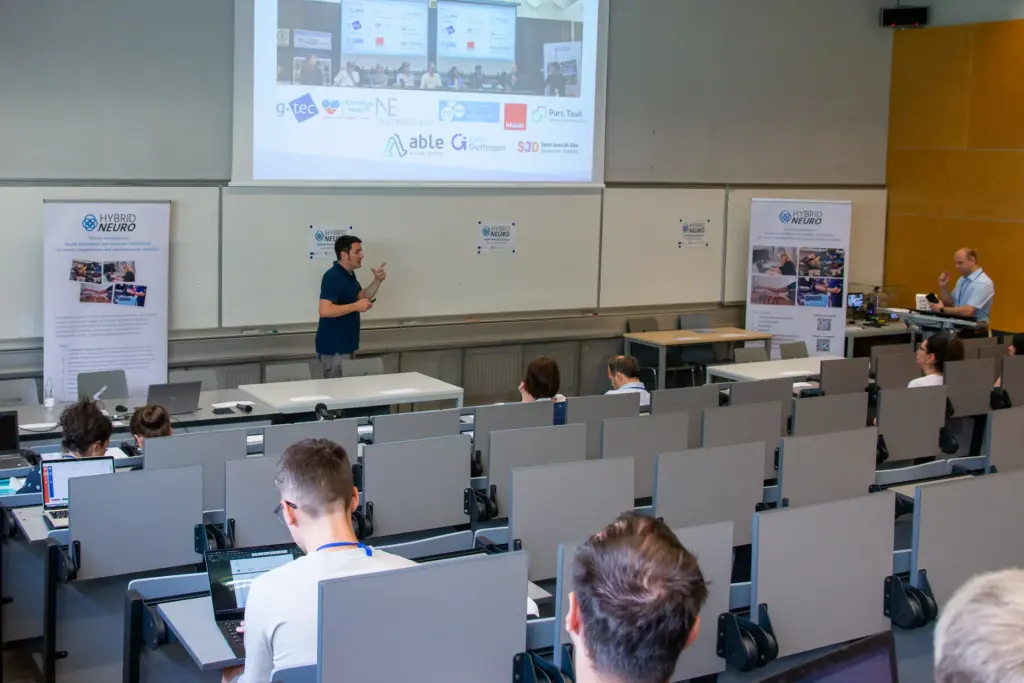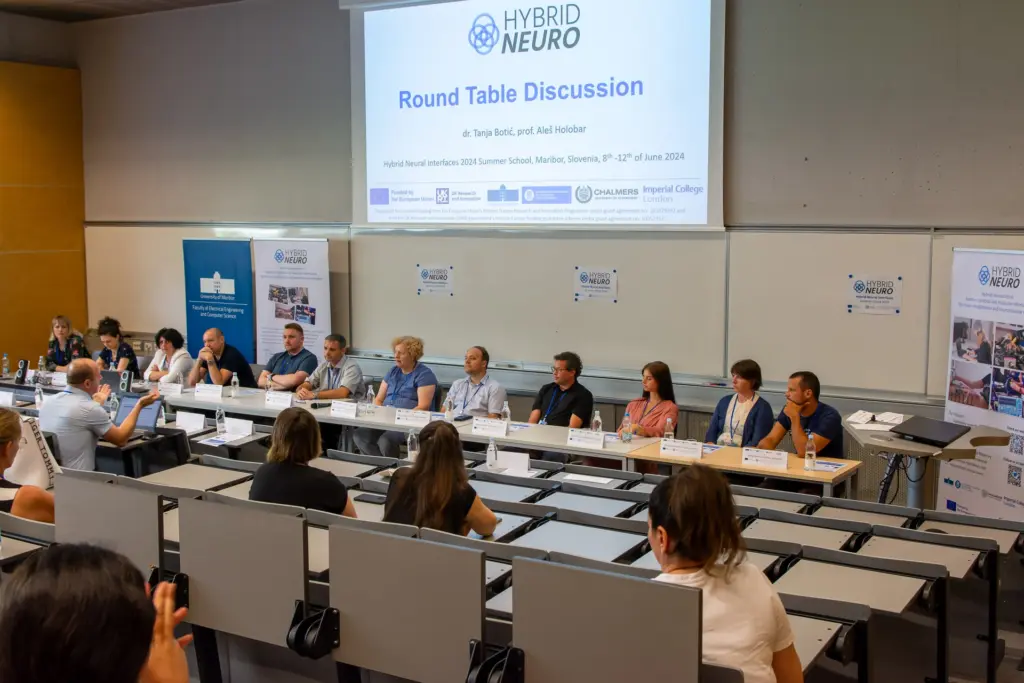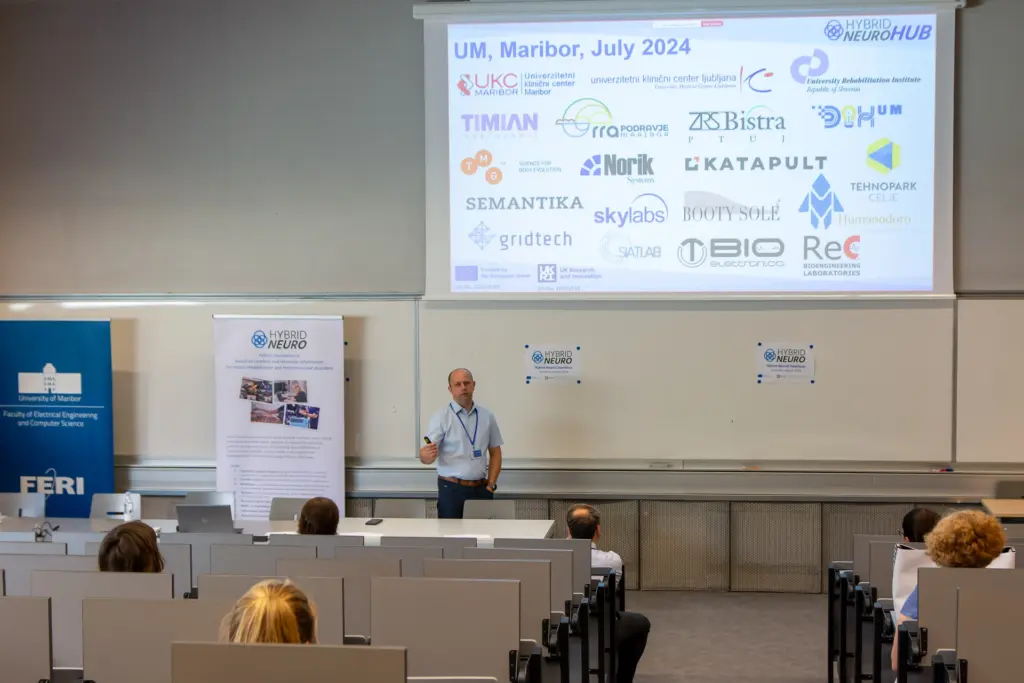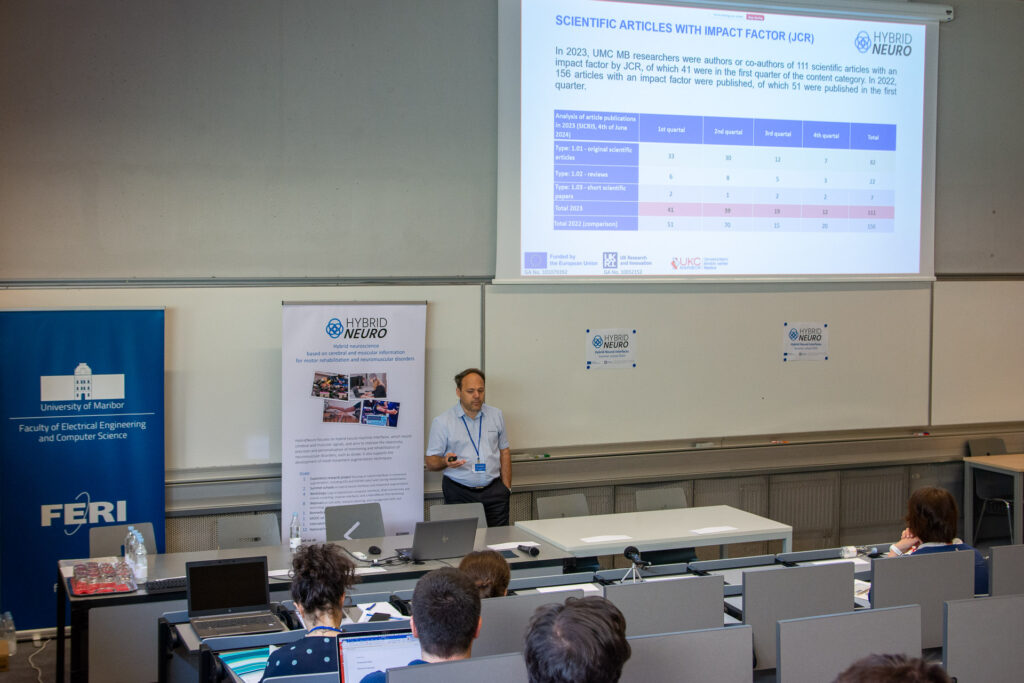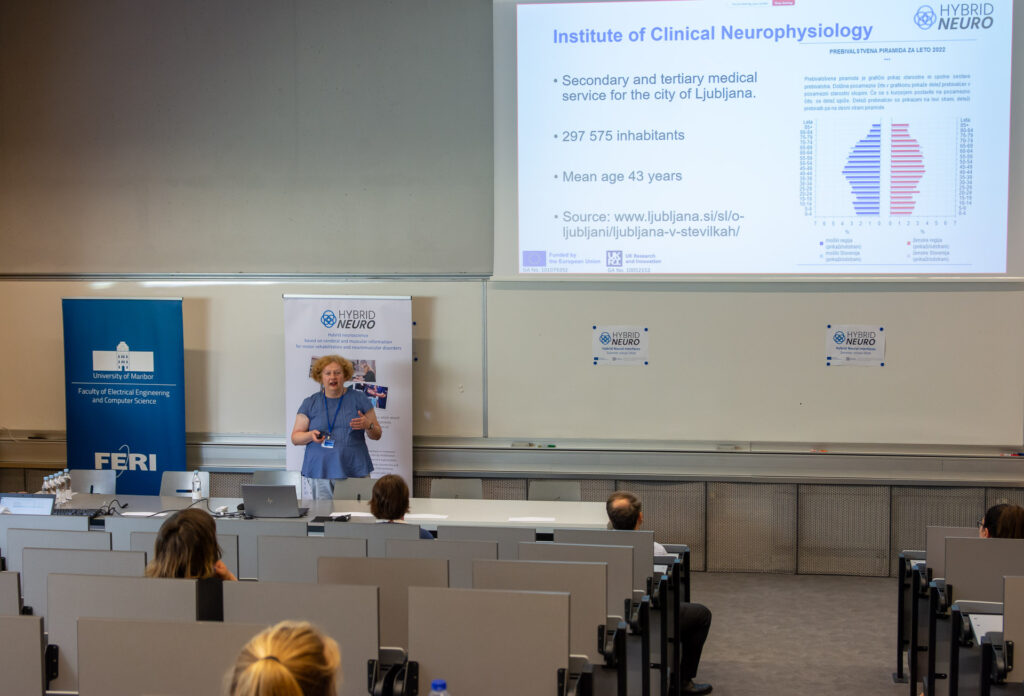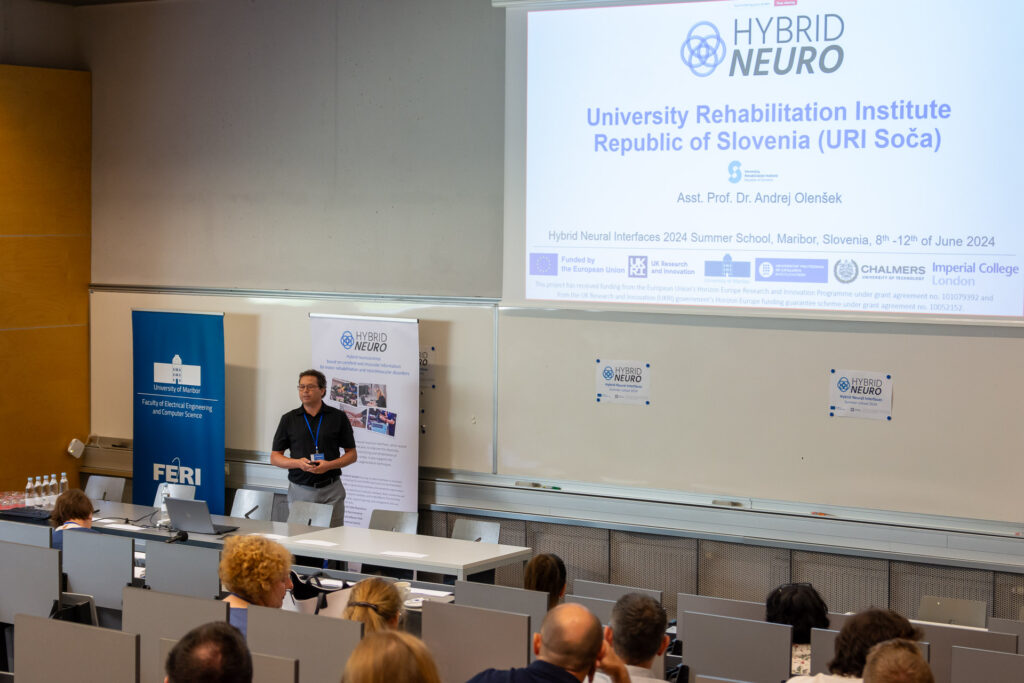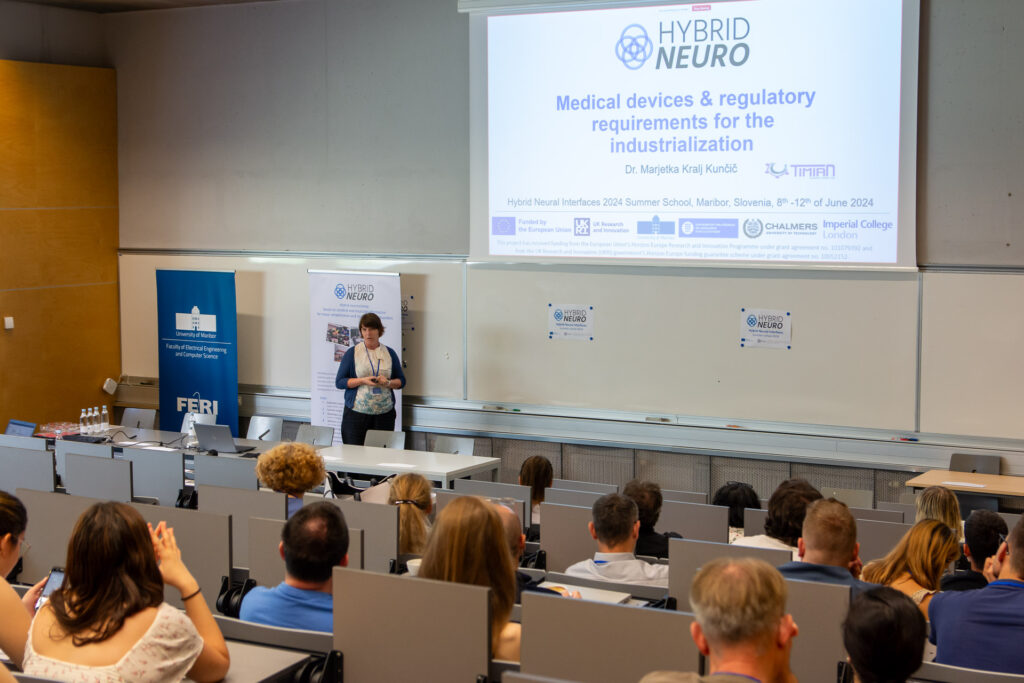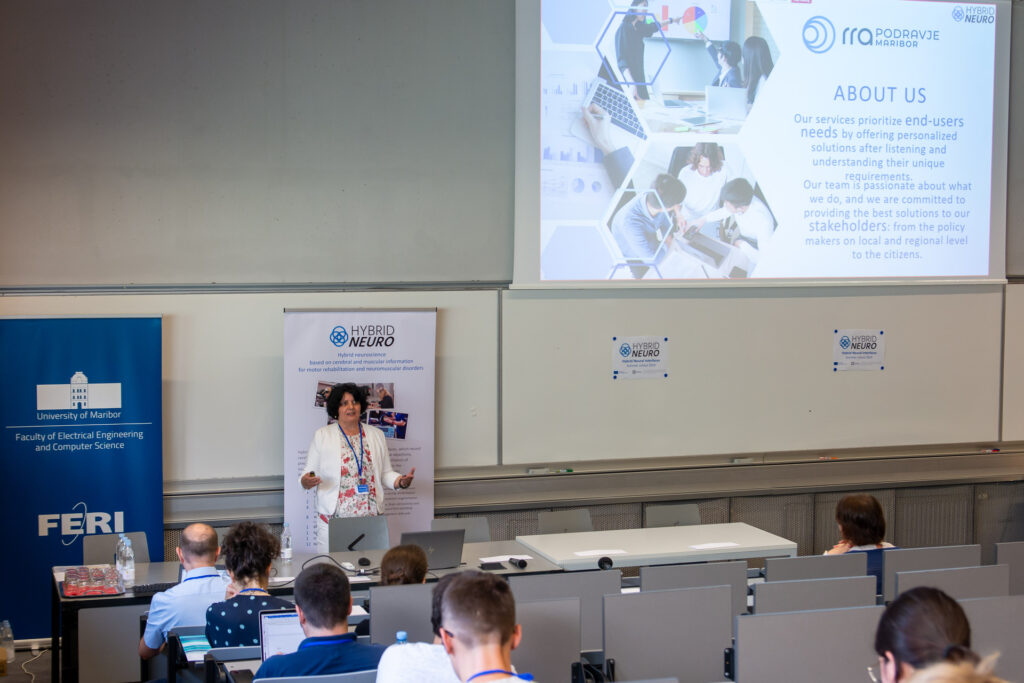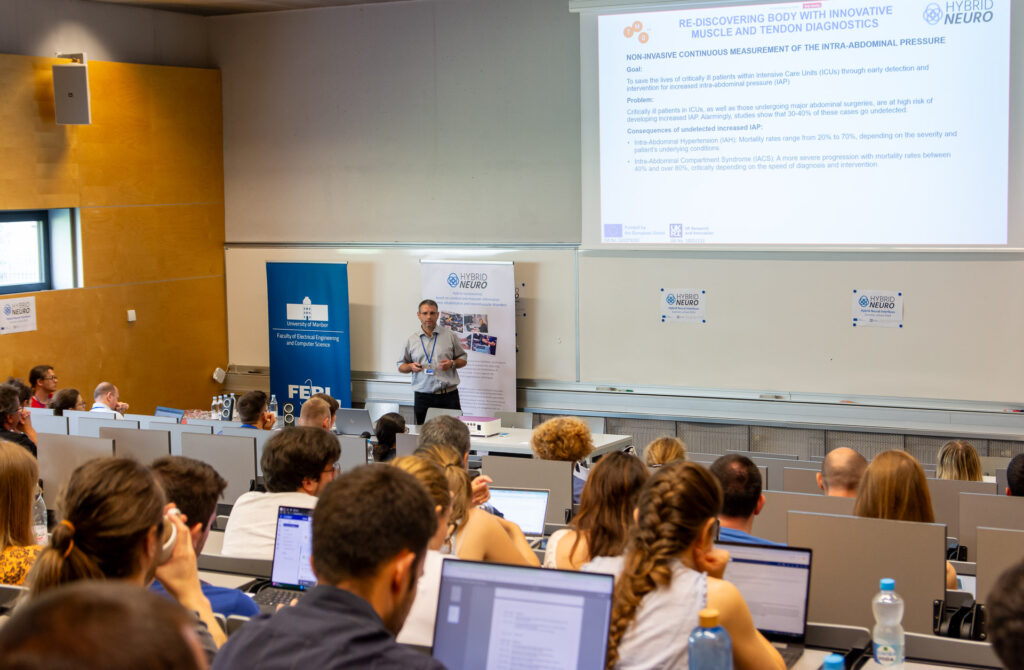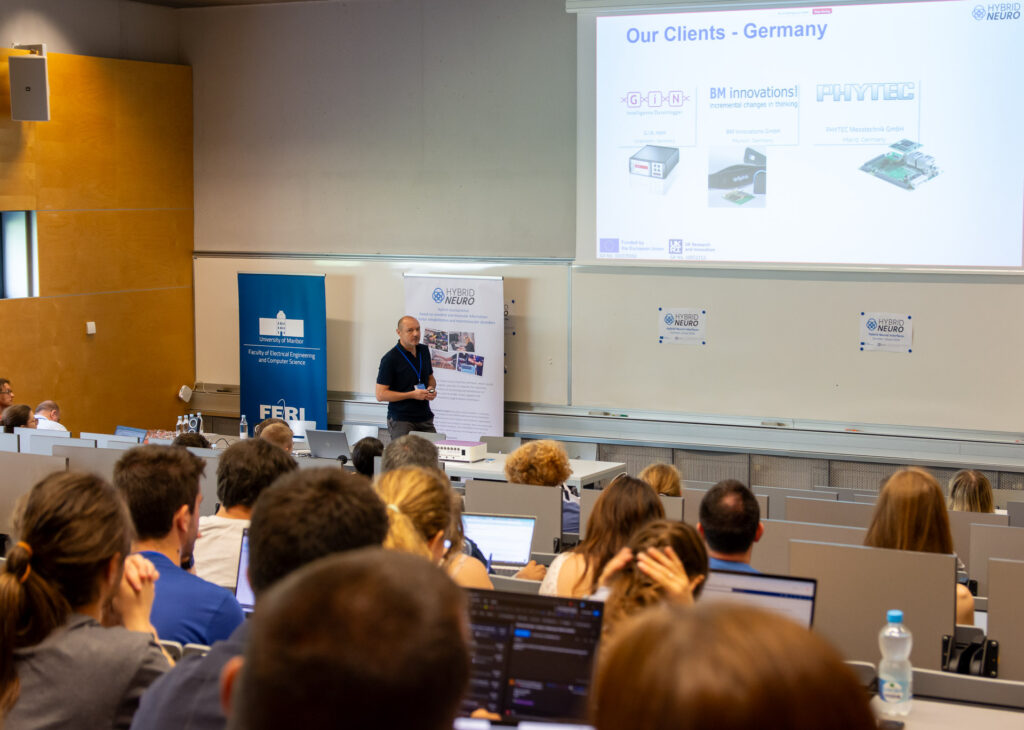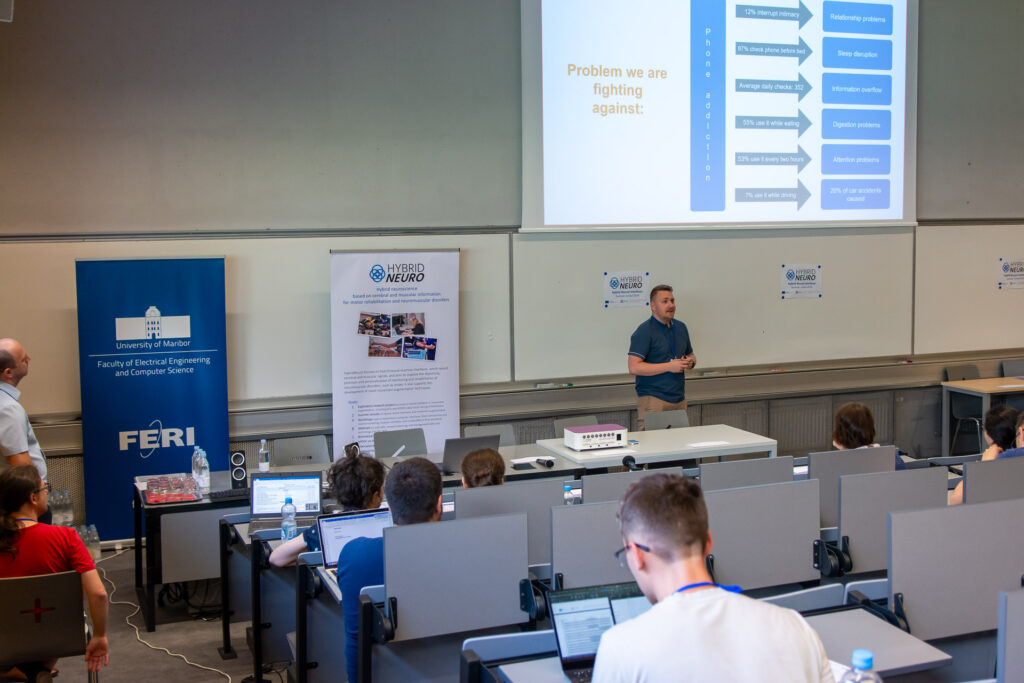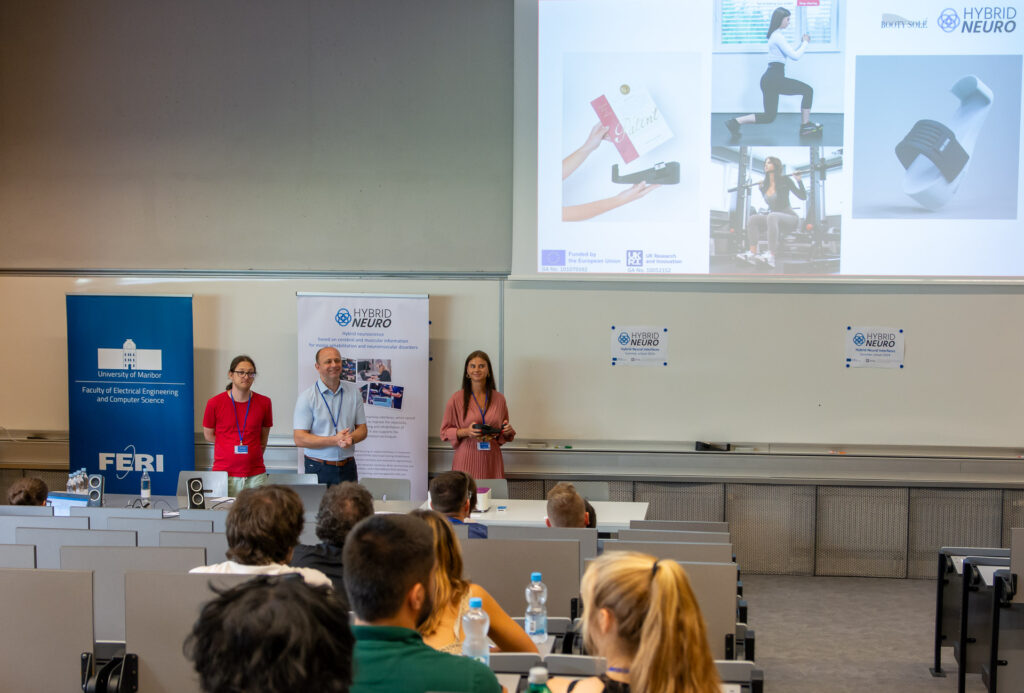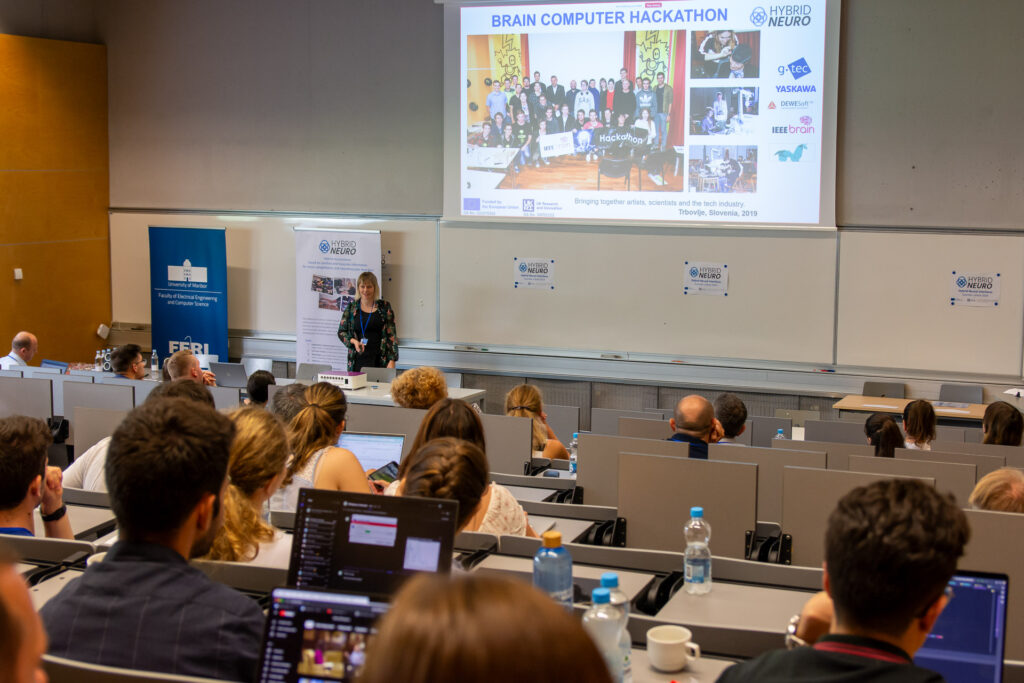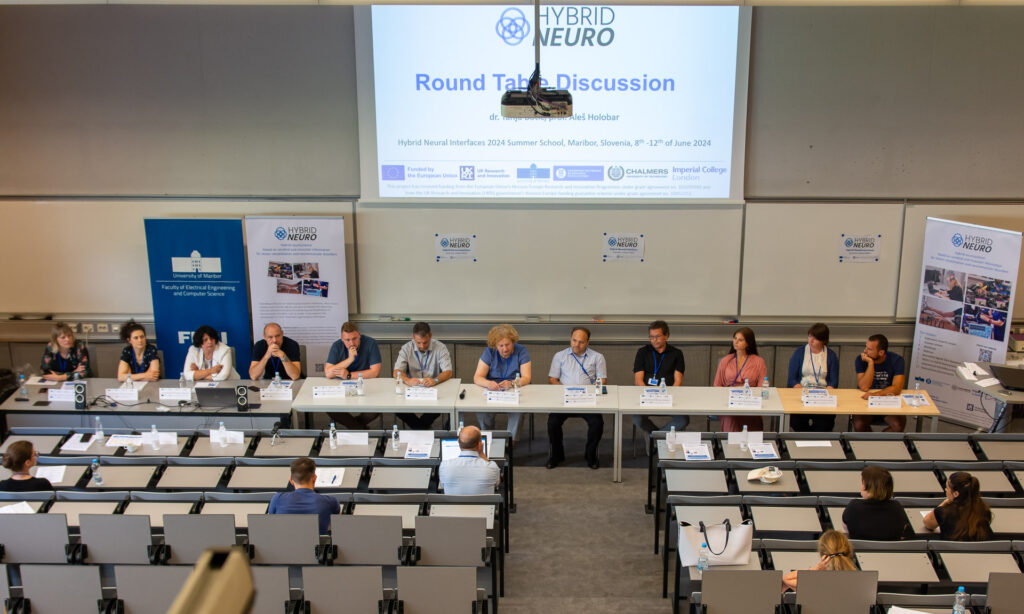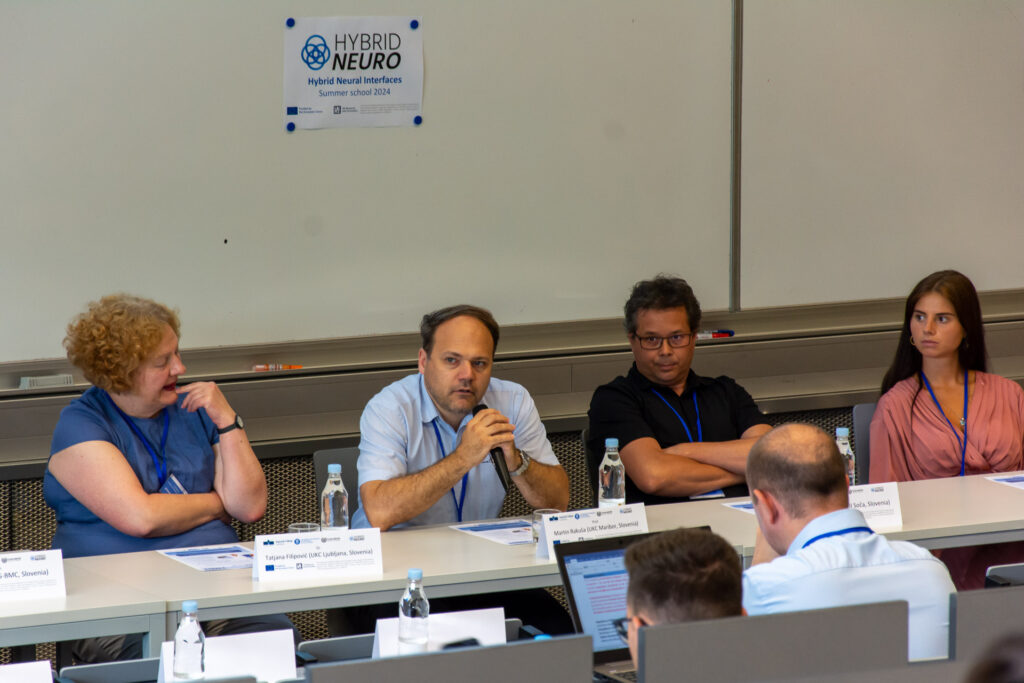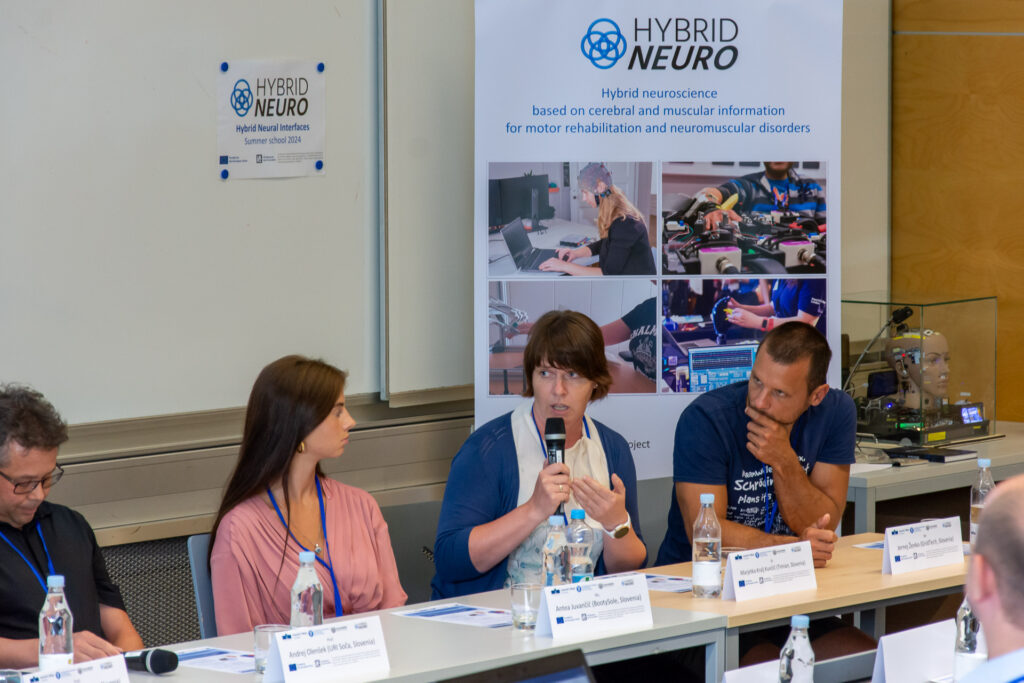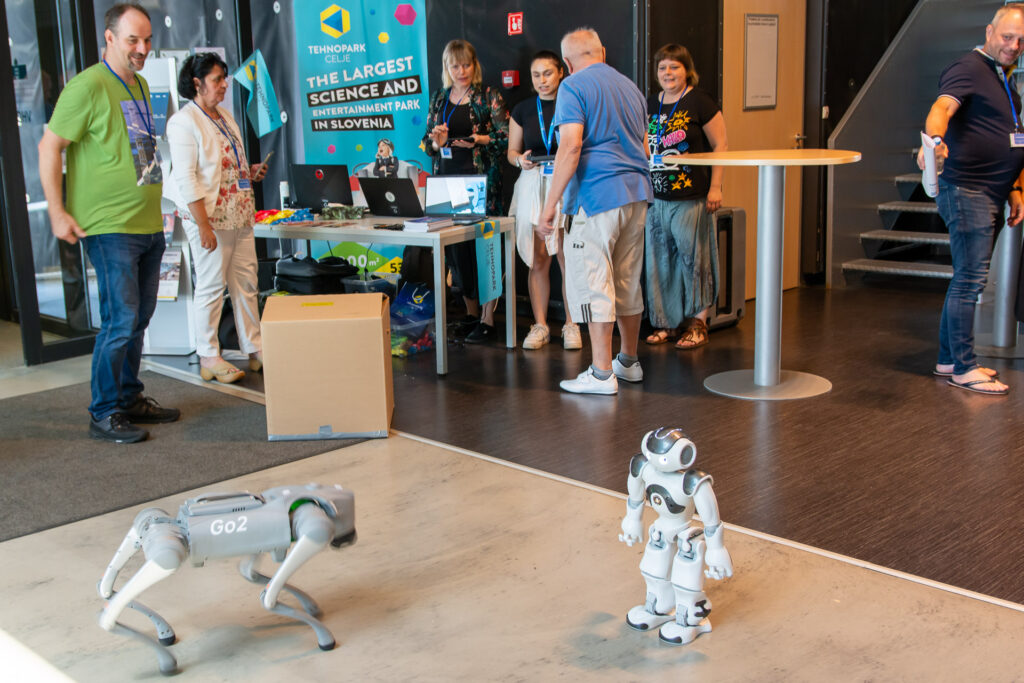The 2024 edition of the Summer School “Hybrid Neural Interfaces – HNI2024” concluded up with outstanding feedback and collaboration. Hosted by the University of Maribor, the event took place from July 8th to 12th at the Faculty of Electrical Engineering and Computer Science and brought together over 60 participants in person and 20 online attendees from diverse institutions across Europe, Canada, Indonesia, Iran, and Japan.
Focused on neural interfaces, the school explored cutting-edge topics, including HDEMG (surface and intramuscular), EEG, kinetic, and ultrasound technologies. The opening session, led by Aleš Holobar, coordinator of the HybridNeuro project, set the stage for a week of knowledge-sharing, networking, and interdisciplinary collaboration.
On July 12th, 2024, the HybridNeuro Hub Day was successfully implemented as the concluding event of the Summer School. This initiative brought together key stakeholders from industry, research, clinical practice, regulatory agencies and technology transfer clusters to foster collaboration, share insights, and strengthen partnerships in bridging academic research with clinical and industrial applications.
Key Themes & Discussions:
The HybridNeuro Hub Day in Maribor focused on strategies to overcome regulatory hurdles, financial barriers, intellectual property rights, and market challenges associated with the development and commercialisation of neurotechnology innovations in Slovenia and Europe.
Stakeholder Representation:
Universities: Faculty of Electrical Engineering and Computer Science from University of Maribor, Slovenia (Aleš Holobar, Tanja Botić), Imperial College London, UK (Dario Farina, Alejandro Pascual Valdunciel), Universitat Politècnica de Catalunya BarcelonaTech, Spain (Miguel Àngel Mañanas, Roger Esteban Vives), Chalmers University of Technology, Sweden (Silvia Muceli).
Industry & Start-ups: Booty Sole, Slovenia (Antea Juvančič), Humanodoro, Slovenia (Kristjan Stopar), GridTech Ltd., Slovenia (Jernej Ženko), TMG-BMC Ltd., Slovenia (Jure Jemec), Norik exp.-imp. Ltd., Slovenia (Mattias Gorjup), OT Bioelettronica Torino, Italy (Andrea Botin), REC Torino, Italy (Giacinto Luigi Cerone).
Clinics & Rehabilitation Centers: University Medical Centre Maribor, Slovenia (Martin Rakuša, Igor Robert Roj), University Medical Centre Ljubljana, Slovenia (Tatjana Filipović, Lea Leonadris), Soča Rehabilitation Centre, Slovenia (Andrej Olenšek).
Regulatory Bodies & Agencies: Timian Consulting SI Ltd., Slovenia (Marjetka Kralj Kunčič), Regional Development Agency Podravje, Slovenia (Amna Potočnik), Scientific Research Centre Bistra-Ptuj, Slovenia (Klavdija Rižnar).
Technology Transfer Offices & Technology Parks: Technology Transfer Office from the University of Maribor, Slovenia (Nina Smerdu, Doroteja Novak), Katapult Trbovlje in collaboration with TehnoPark Celje, Slovenia (Maša Jazbec).
The Hub Day was an opportunity to assess strategies to overcome regulatory, financial, IPR, and market barriers associated with the development and commercialisation of technologies in human motor science and rehabilitation.
Round Table Discussion: Challenges & Opportunities
One of the central highlights was the Round Table Discussion, where diverse stakeholders exchanged insights on topics including:
- Navigating regulatory pathways
- Addressing intellectual property rights
- Advancing market adoption strategies
- Enhancing cross-sector collaborations
Key experts contributed to this dialogue, showcasing the multidisciplinary and multi-sectoral effort involved in neurotechnology innovations.
Networking & Lunch
The event concluded with a lunch and networking session, providing a perfect opportunity for participants to establish valuable partnerships, strengthen professional networks and initiate new collaborations.
Strengthening Partnerships: Clinicians, Industry, and Research Collaboration
The 2nd HybridNeuro Hub Day has emerged as a vital European-wide initiative, fostering partnerships among clinicians, researchers, start-ups, regulatory bodies and technology transfer clusters. This strategic effort aims to ensure cross-sector collaboration and the successful translation of academic research into impactful clinical and industrial applications for the future.
